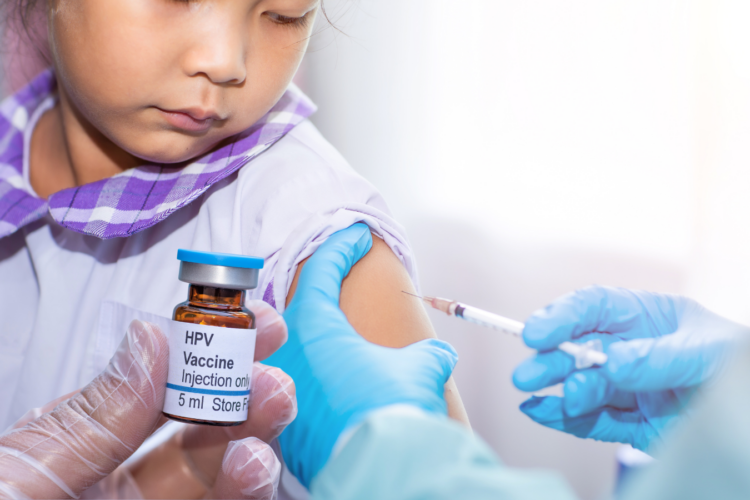Human papillomavirus (HPV) is one of the most prevalent sexually transmitted infections (STI) globally and is easily spread on university campuses. Adolescents and young adults aged between 15-24 account for almost half the STI cases that occur every year, as estimated by the Centers for Disease Control and Prevention (CDC). There is currently no cure for HPV. Although the infection can disappear within two years, that is not always the case. An individual who has acquired the disease is at a higher risk for health complications, such as genital warts and cancer. Fortunately, there are preventative measures that can be taken to protect yourself and others from the detrimental effects of HPV.
According to the CDC, about 90% of anal and cervical cancers, 70% of vaginal and vulvar cancers, and 60% of penile cancers are generally caused by HPV. There are currently three vaccines approved against different strains of HPV but each one protects against the two most common cancer-causing strains, HPV 16 and 18: Gardasil 9, Gardasil, and Cervarix. For vaccine efficacy, the recommended age to receive immunization is 11-12 years old with a two-dose series but administration can start as early as the age of nine. Nevertheless, anyone less than 26 years of age is suggested to receive the three-dose series. Since the vaccine was introduced to the world market in 2006, the number of HPV infections and cancer-related cases significantly dropped. Immunization programs are gradually being adopted by governments and promoted in schools for early intervention and preventative care. Despite its health benefits, there is still a lot of misinformation and distrust towards the vaccine. Let’s debunk some of the most common myths about HPV and the vaccine.
- The HPV vaccine is not safe and can cause adverse effects on health.
The vaccine is safe and effective against HPV-related warts and cancers, such as cervical and anogenital cancers. There are more than 160 studies that assessed the safety and efficacy of the vaccine, showing favorable results. The vaccines are regulated by the Food and Drug Administration (FDA) and go through years of research and clinical trials before it becomes available in the market. Some common side effects can be pain, swelling, and redness where the shot was given, muscle pain, fever, and nausea. The majority of the time, no side effects are experienced by individuals. In the case of vaccine allergy, it is very rare. An allergy test can be performed in case of concerns. For more information about the vaccine, talk to your healthcare provider.
- Only girls can get the HPV vaccine, not boys.
HPV can be acquired by both men and women. While HPV is widely known for causing cervical cancer in women, it can also cause penile, anorectal or oropharyngeal cancer. Men who are at a higher risk for acquiring HPV are those who participate in sexual activities, such as vaginal, anal or oral sex and have a weaker immune system. There are currently no approved HPV tests, so getting immunized is the suggested method for preventative care.

- I am not sexually active, so I do not need the HPV vaccine.
Unlike other STIs, the mode of transmission for HPV is through skin-to-skin contact and not by bodily fluids. The virus can enter through mucous membranes, such as the mouth, lips, anus and genitals. Even if the person carrying the virus does not show signs and symptoms, it is still viable for transmission. It may take years for the symptoms to manifest, making it difficult to diagnose during the early stages of infection. The vaccine provides the option for protecting yourself and those around you from HPV and its complications.
The source of the following information can be found on the CDC website. If you are looking to know more about HPV and the vaccine, reach out to your healthcare provider to get an overview of your options. More details are also available online, but it is important to visit credible websites to avoid misinformation.
Roselle Torres
If you found the article interesting, I also recommend this:





